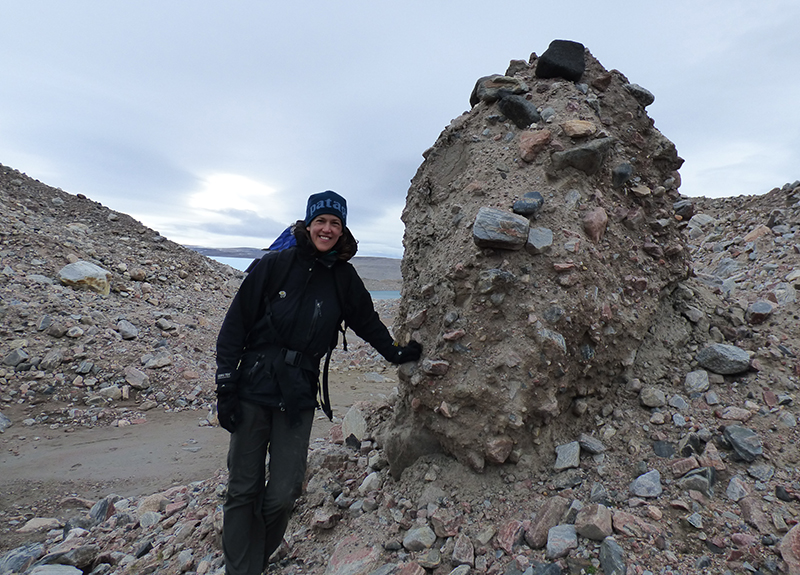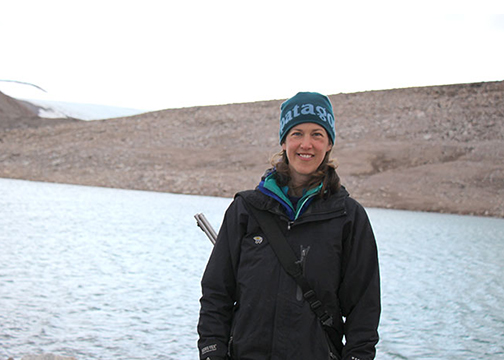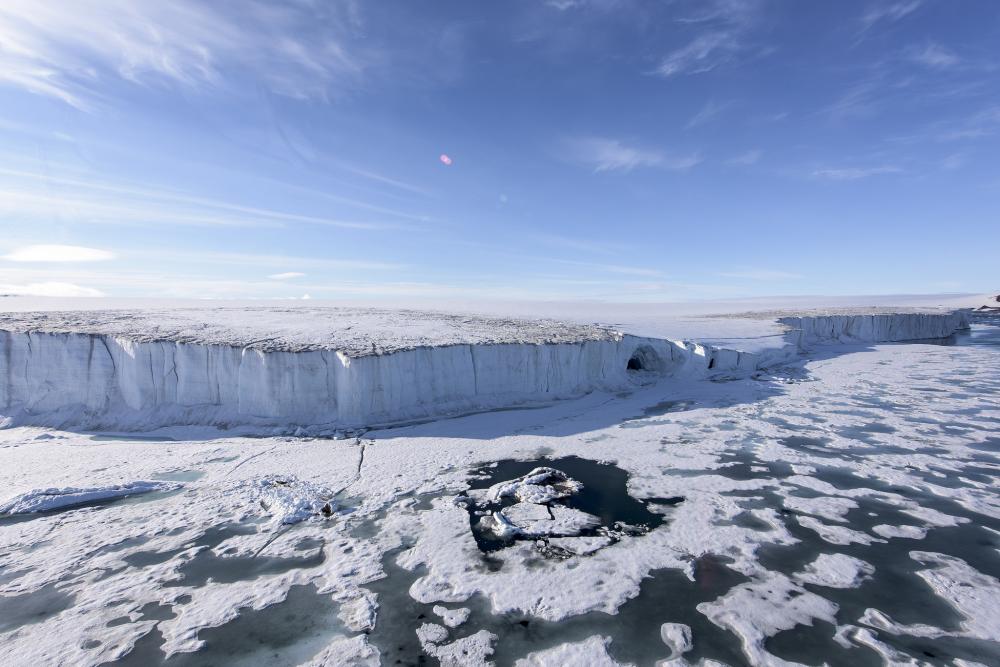Article originally published in Northwestern Research News.
Science is a powerful force enmeshed in a web of social and political relationships. Yet, the public’s faith in this force has waned lately, especially with respect to studies of global warming or the safety of vaccines and GM foods. During a dynamic town hall discussion in Evanston on February 27, scholars from Northwestern and the University of Chicago explored some reasons for this shift and what it means to trust in science today.
Sponsored by the Science in Human Culture Program (SHC), the 90-minute forum featured an interdisciplinary panel: Yarrow Axford, earth and planetary science; Pablo Boczkowski, communication; and Aviva Rothman, history (University of Chicago). They examined the intersection of science, public trust, and governance through a historical lens to provide insight into how scholars, teachers, and citizens might respond to current threats against science. Frictions among research, media, and politics were on the minds of some three-dozen faculty, students, and staff members who participated in the event, organized and moderated by SHC Director Helen Tilley, history.
Good science is slow. It’s a halting, careful process that assembles data and builds models over time to expand understanding and spur innovation. Puzzles are solved provisionally: results are always subject to scrutiny, refinement, and outright revision. Today, this rigorous method may leave academic research especially vulnerable to misunderstandings or manipulation. In an era of “fake news” and “alternative facts” disseminated through digital channels, both truth and trust can be early casualties. These circumstances, said panelists, are compounded by science being a “social construct” subject to the political and cultural forces that impact any institution.
“Knowledge is made, it’s produced by scientists,” said audience member Ken Alder, history, acknowledging a common argument leveled at scholars. “But that doesn’t mean science isn’t a robust, ongoing process that generates reliable knowledge we can build social policy around.”
Yet, some researchers find that their work is less welcome in that effort. Climate scientists like Axford may be among the more visible recent targets of opprobrium fueled by misinformation. Her field is a political lightning rod attracting unwanted attention — even threats — for investigators who are merely exploring the empirical evidence and its implications.
“This is a statement that can make my heart pound when I say it in some settings: Adding greenhouse gases to a planet’s atmosphere will cause that planet to warm,” said Axford deliberately, standing before NASA data indicating a clear historical rise in Earth’s temperature since 1880. “This is as close to an unassailable fact as science can make. Between 97 and 99 percent of climate scientists agree. Yet, in a public context, making these scientifically uncontroversial statements can feel like a political act and so a bit scary, and that’s not what I got into science for.”
Axford cited the “Serengeti strategy,” a term coined by distinguished climatologist Michael Mann, to explain how research can come under attack by skeptics. By isolating one small group of scientists, rather than taking on an entire discipline, skeptics can “separate the ‘gazelle’ from the ‘herd’ [the overall trend or consensus],” said Axford. Then, by calling a single scientist’s work or one dataset into question, critics try to undermine the entire scientific enterprise. “The idea is that, supposedly, if one thing is questioned, nothing can be valid. Everything is a house of cards.”
Exacerbating this challenge is the way that information travels through social or other media, said Boczkowski, whose cross-cultural research examines the transition from print to digital platforms. When traditional media forms began to give way to online ones, what some had hoped or expected did not occur. “The top-down news infrastructure of the previous century has not been replaced by a grassroots, bottom-up alternative,” he said. “What emerged instead is a matrix that combines concentration of ownership and attention of the legacy media system with the distribution of communication flows of daily life.”
This change has enabled information to be deliberately manipulated and shared widely.
“Fake news has always existed, but now we have an infrastructure that allows the much more accelerated reproduction of it with many more ‘senders’ than before,” said Boczkowski. Social media’s “political economy” — including how content is curated and how advertisements are sold — also encourages polarization, he said. Newsrooms, too, have become less diverse, with fewer resources. Editors, rather than reporters, typically drive story development, resulting in more predictability and homogeneity. “What does this suggest about the circulation of knowledge? From both a cultural and technological standpoint, this signals a crisis of knowledge not only in journalism, but beyond.”
Rothman, a historian of science, turned to critical theorists, such as Michel Foucault and Bruno Latour, to highlight research as a socially constructed “cultural product”— one that until recently has been produced predominantly by white men and that has been used for bad ends as well as good. Rather than try to distance themselves from this constructed reality, she said academics should embrace and examine it so that they can improve science. She believes this is best even if social and political pressures make it tempting to present science as the purveyor of absolute truth.
“Foucault dismantles some of our favorite truths about science,” said Rothman, “But these theorists are not only seeking to destroy, but to reveal the true history, the contingencies behind our institutions. They imagine alternate realities and how we might aspire to them and build a better world.”
Sometimes the best questions don’t have easy answers, Rothman added. “I trust my students to wrestle with complexity. … Science can be a force of resistance and change, but only if scientists don’t pretend they are working in a vacuum.”
Researchers will have a chance to take a more public stance during the April 22 nationwide March for Science, said Phil Hockberger, physiology and an SHC faculty affiliate. Hockberger is among those volunteering in his personal time to help organize the Chicago version of the March. At the town hall, some graduate students wondered whether or not they should participate, voicing concern that the March might damage their careers or further politicize science. Hockberger suggested the March, in its celebration of science, likely would do neither, but he offered no guarantees. He called these “unprecedented times” and said it was therefore difficult to assess risk entirely.
Axford provided some comfort, at least for those students intending to remain in the sciences: “Your future employer is not your enemy and, in fact, stands behind you. I wouldn’t worry about marching harming your career prospects, but I understand the worry.”






